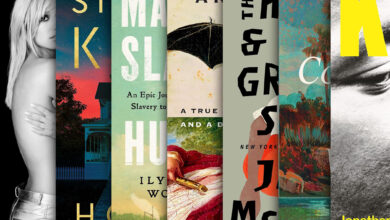
You have an idea.
You’ve laid out the details for your friends (and maybe a few non-judgey members of your family); some laughed, some gasped, and you’re feeling confident that you might have a hit rattling around in your brain. They think you could be a writer! So…now what? Sure, you’ve thought about it, but taking the first step on the ‘how to be a writer’ trail seems daunting.
The good news is it just takes practice. There’s a lot of reading, research, and angrily shredded drafts, but the old adage holds true: practice makes (sort of) perfect. And you need good ideas. My bad, I kinda buried the lede on that one…
First things first: Write. Everything. Down.
Document every single detail of your idea, doesn’t matter if it’s one funny line of dialogue, a vague situation, or a few paragraphs that keep swimming around in your head. Grab some Post-Its, a notebook, a journal; whip out your phone, tablet, or laptop; open up Evernote, Apple Notes, OneNote — use whatever you have in your immediate vicinity, just write it down.
Take it from someone who has thrown a couple fits over brain farts, forgetting ideas really sucks.
Next up: Read.

Your idea fits into a specific genre, so you need to read other books in the same genre. Once you see how other writers do it, you can better grasp how the story structure is laid out, how the plot unfolds, and how the characters interact with each other.
Is it a ‘whodunnit’ crime mystery? A dramatic love story? A hilarious slapstick, road trip comedy? (After all, everyone says you’re the funny one, right?) Plus, you will be surprised by new discoveries and can fine tune what you like and don’t like.
PRO TIP: Keep learning. Research the best books on writing to see how the pros do it, you will pick up some amazing tips and methods that will save you time and aggravation. I would suggest finding these titles to get you started:
Story By Robert McKee
On Writing By Stephen King
Poetics By Aristotle
The Hero With A Thousand Faces By Joseph Campbell
Save The Cat! By Blake Snyder
Structuring Your Novel By K.M. Weiland
The Anatomy Of A Story By John Truby
The Comedy Bible By Judy Carter
(Disclaimer: We / I do not benefit in any way if you buy these titles, this is just a starter list of books that have helped me. Check out reviews on these and other books and find what’s right for you!)
Now comes the fun part — The Outline.

Here’s where you get to lay out your story ideas and see where the holes are, the little gaps between scenes or chapters that need to be connected for the story to make sense to readers.
I use the tried-and-true Corkboard Method. It’s simple: buy a large corkboard that you can hang on a wall, get a few humongous stacks of 3” x 5” index cards, then write down all the scenes of your story on the index cards and hang them up in story order.
Each index card should contain one or two sentences about what is happening in the scene, who is in the scene, and should give an idea of the conflict or action. Example: “Heading: Chapter One, Scene One. Body: Secret Agent Smith infiltrates the enemy lair, but the security guards see him on camera and rush to intercept him. Fight Scenes ensues.”
Create a separate index card for each individual story progression. If you have multiple scenes within each novel chapter, make a card for each scene or character change. If you’re writing a screenplay, make one for each scene. Also, if you’re writing a screenplay, research how to write a screenplay…
Now that you have all of your index cards pinned in order on the corkboard, you can see the natural progression of your story and any glaring holes between scene or chapter changes will be staring you in the face. Fill the gaps, then move on to…
WRITING!

This is the hard part. I mean the really, really hard part. There is no trick to this other than sitting your butt in the chair and doing the work. You will have to discipline yourself. Carve out some time in your week where you can have uninterrupted time to work, because it will be difficult. Some days you will write ten pages, other days you may be lucky to crank out one.
But don’t give up. You can do it, you just need perseverance, a little creativity, and lots and lots of coffee. You did your research, you laid out your outline, and you have your notes. Your characters will come alive, you’ll smile at your own wit, and your story will make you feel your own feelings in fun and surprising ways.
Oh, and one final tip from someone who learned the hard way — if you choose to drink alcohol while working, you’ll find it much easier if you follow this rule: Drink alcohol for brainstorming, drink coffee for writing. Trust me.

Once you have finished your first draft, it’s time to celebrate! Take a week off, you earned it.
Now, go back to your baby, read it all the way through, and try not to cringe (especially if you ignored me and drank alcohol while writing). You will need to re-write it, maybe three or four times. Make notes, dig in, and clean it up. You’ll be annoyed at first, but you’ll be so much happier with the final product once you’ve done a few more passes.
Here are a few ways you can turn your baby into an actual product that millions of people will enjoy. This will be more difficult if you are a first-time writer because no one wants you until everyone wants you.
Agents and publishers do not accept unsolicited material, and unless your cousin’s step sister’s hairstylist’s personal trainer plays frisbee golf with an elite literary agent, you probably won’t get them to look at your work.
PRO TIP: Do not pay an agent up front to represent you. Agents and other representatives make a commission from what you are paid, and legitimate representatives never ask for money up front. If someone says they will represent you “for a small fee,” make yourself as big as you can in your space, scream at the top of your lungs, and run away.
If you wrote a novel, research Amazon’s CreateSpace and Kindle Direct services. You will have to use your first novel to get noticed, so you may have to go the self-publishing route first, unless you have some literary agency contacts.
There is no shame in this, it is much more widespread and acceptable than you think. In fact, some agents actually suggest self-publishing for first-time novelists so they can learn the business and get their name out there to attract attention.
If you have chosen to self-publish, create both hard copies and e-book versions of your novel, then approach local bookstores about carrying your books on consignment. This means that you will leave 3-5 physical copies of your book at the store, and sign a receipt stating that the bookstore will sell them for you for a small fee.

Pick a good price point that is competitive with similar novels in your genre and your manuscript length, but that showcases the quality of your work. Don’t go too cheap unless you are running a promotional period to drive sales. Research other books in your genre to gauge how much you should charge.
Ask the bookstores if you can do a book signing at their location. You’ll be surprised how many stores will welcome local artists. And don’t forget to bring your own books.
Attend writers’ conventions, find social media groups to participate in, and network your butt off — you never know whom you will meet, and you never know when you’ll cross paths with a real agent or assistant editor.
Build up your social media profiles and pitch your work. Announce new signings, offer discounts on special weekends and holidays, and direct people to your book on Amazon and Kindle, or wherever it is available.
You are your own agent and PR firm at this point, just don’t drive people crazy. Pepper in some real-life stuff between your shameless social media posts.
And be yourself, because that’s how people truly connect to you and your work.
If you have written a screenplay, research screenwriter competitions offered by film festivals all over the country. Small festivals, Sundance, whatever it is, submit your screenplay into the competition. If you win some awards, someone will take notice, and you could find yourself swept up into a whirlwind of meetings and real cash offers for your work.
But, again, real agents only make money when you make money. Do NOT agree to a representation contract if they are asking for money up front. Remember your training…make big, scream, run away.

Now that you’re a successful writer, it’s time to do it all over again! Once you start, the ideas keep coming. And they won’t leave you alone. So, sit your butt back in that chair, write it down, and make some magic happen on that page.
And make more coffee.
More helpful entertainment industry articles and resources can be found on our #CD Entertainment Page and our #CD Business Page.
Chicago Devotion offers an extensive Resource Directory, free of charge, at:
www.chicagodevotion.com/resource-directory/.
For more helpful posts, follow @ChicagoDevotion on social media at our Facebook Page, our Twitter Page, and subscribe to our YouTube Channel.




